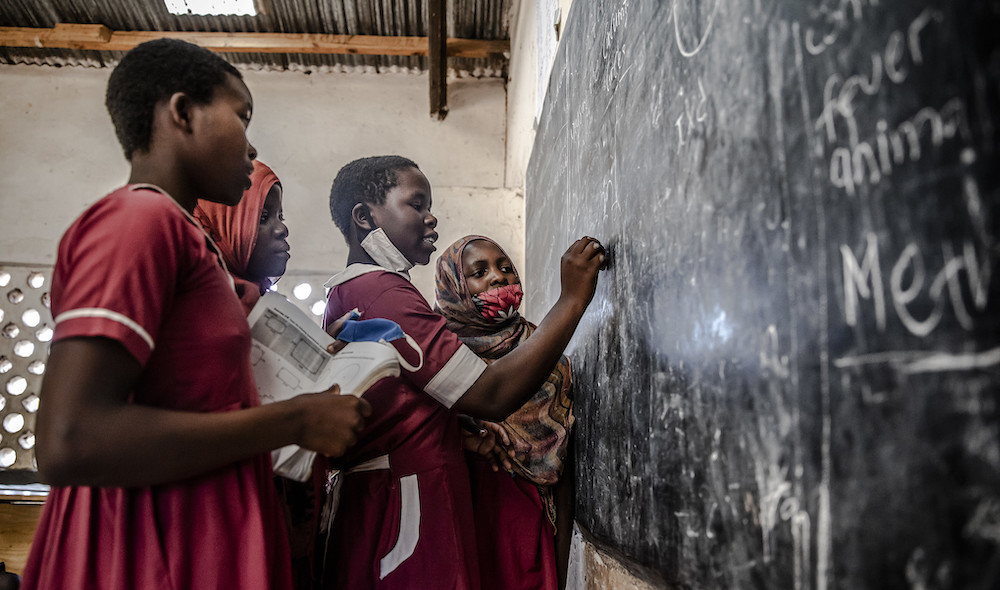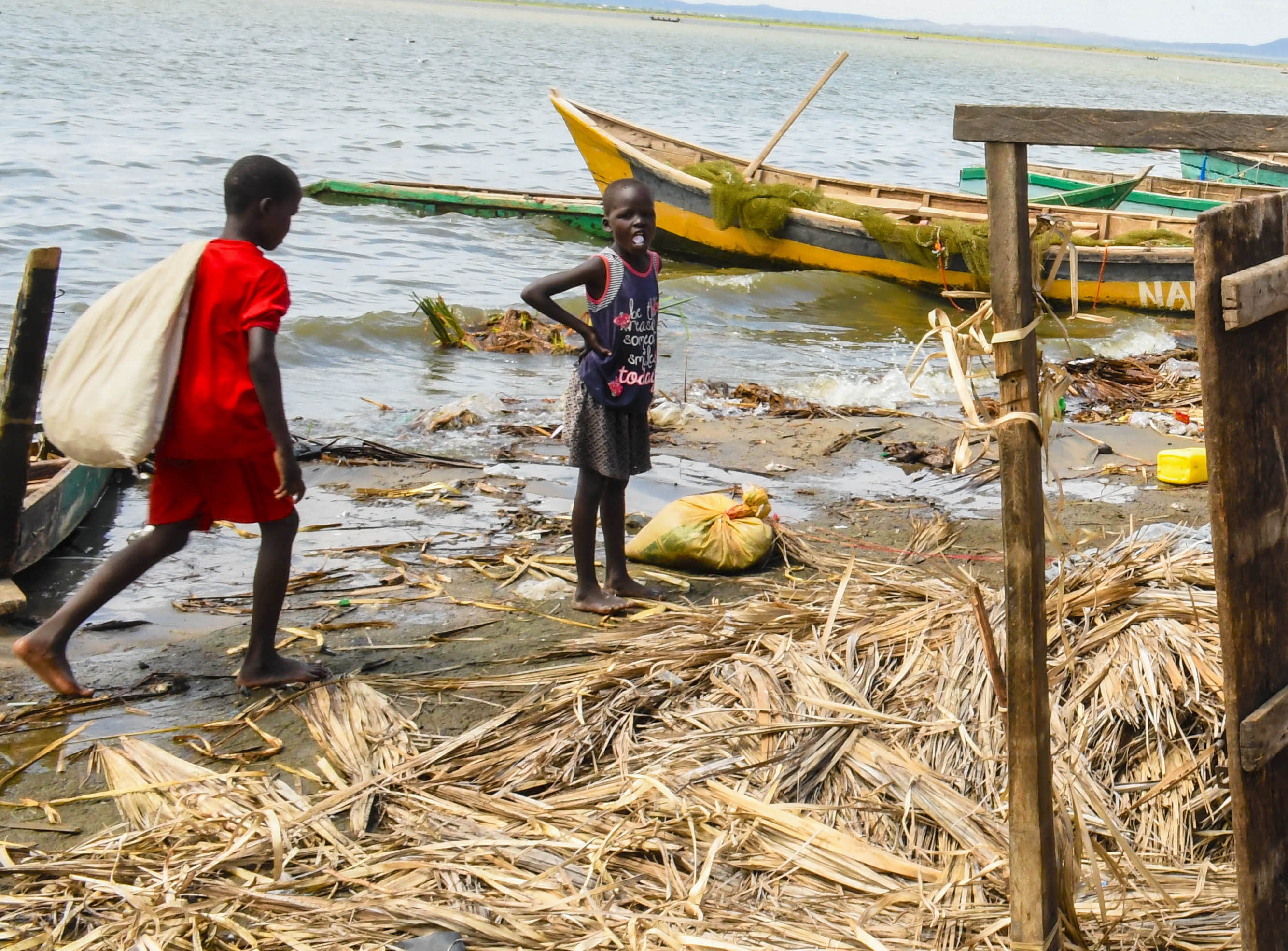JOHANNESBURG, South Africa—Empowered women and girls have the capacity to build resilient communities using local solutions to climate change to safeguard lives and ensure a sustainable future for all. But not enough is being done.
“Current efforts to adapt to climate change are simply not sufficient,” said Dr. Bannet Ndyanabangi, Regional Director ad interim for UNFPA East and Southern Africa, at an Africa Climate Week side event on enhancing gender-sensitive and health adaptation responses in Africa. “Moreover, solutions are not always designed to prevent disproportionate impacts on women and girls, as well as other vulnerable or marginalized populations.”
Solutions to climate change are not always designed to prevent disproportionate impacts on women and girls.
In Malawi, an estimated 1.5 million girls are at risk of child marriage due to the impacts of climate change, including flooding and drought. The livelihoods of families have been affected, making it more difficult for parents to take care of their children, according to a report.
Understanding the gender links
Disasters brought about by climate change hit women and girls particularly hard. National adaptation plans need to address the needs of women and girls and include actions to strengthen health systems. Governments, donors, faith-based organizations and communities leaders need to work together to mobilize resources and take targeted action to ensure this.
“We know that the African continent and women in particular are extremely vulnerable to the impacts of climate change,” said Gareth Phillips, Manager of the Climate and Environment Finance Division at African Development Bank. “Climate adaptation is an imperative for Africa and we must ensure that resilience is built across all segments of the society in an inclusive manner.”

Women and girls bear the brunt of climate change
It is problematic that during climate-induced natural disasters, essential health services – including sexual and reproductive health services – are often overlooked. The consequences are staggering – higher rates of unintended pregnancies, maternal deaths, school drop-outs, child marriages and sexual and gender-based violence (SGBV).
“Gender inequality and health issues affect the ability of individuals and communities to adapt to climate change, and the disparities are glaring,” said Mr. Phillips.
In 2018, an estimated 108 million people needed life-saving assistance due to climate and weather-related disasters, according to a 2019 International Federation of Red Cross study. This figure could double by 2050 if a business-as-usual scenario persists.
Africa has been hit hard by the intensifying impacts of climate change. The continent is in dire need of greater adaptation financing that supports health systems strengthening. It also needs bold, measurable climate adaptation responses that are gender sensitive.
Resilient health systems that ensure continued access to sexual and reproductive health services are vital to safeguard the lives of millions on the continent.
Promote gender-sensitive health and climate adaptation responses to safeguard lives
Promoting gender equality and women and girls’ empowerment is increasingly being recognized as instrumental for fostering inclusive and dynamic economies and establishing prosperous and healthy societies.
“With the impacts of climate change intensifying, and African countries hard hit, building resilient health systems to ensure continued access to sexual and reproductive health services is vital to safeguard the lives of millions of women and young people on the continent,” said Dr. Ndyanabangi.

Protecting women in national plans
Recently, UNFPA in collaboration with Queen Mary University of London, launched a review of Nationally Determined Contribution (NDC) documents for 50 countries, which looked at references to sexual and reproductive health and rights and related thematic areas.
The review found that national climate plans on the continent need to be more gender-sensitive in their climate adaptation plans and should better support the resilience of health systems to ensure protection and continuity of services during crises.
“As we look at building a climate-resilient health system...we need to take into consideration the gender-differentiated impacts that occur [when a climate-induced disaster strikes],” said Ms. Edith Ofwona Aderais, Principal Climate Change and Green Growth Officer, African Development Bank Group.
Climate action is time bound. We must seize the opportunity to act now.
Communities thrive when all their members have equal access to and control of resources, as well as access to opportunities more broadly. Governments across Africa and the donor community must move with speed to ensure adequate finances are available to enable climate-resilient health systems strengthening and gender-sensitive plans for the benefit of women and girls, young people and the planet.
“Climate action is time bound. We must seize the opportunity to act now,” said Dr. Ndyanabangi.
The side event was co-hosted by the African Development Bank (AfDB) and UNFPA, the United Nations sexual and reproductive health agency. Both institutions are part of the Africa NDC Hub hosted by the AfDB to bring a gender and sexual and reproductive health and rights lens to climate adaptation in the various national climate policies and programmatic work of key players in climate action in Africa. The aim of this platform is to help African countries deliver their climate commitments under the Paris Agreement


